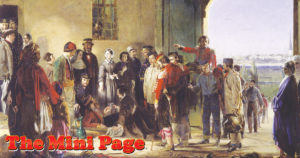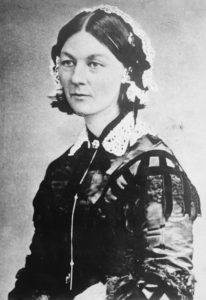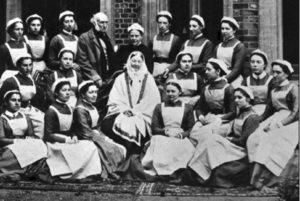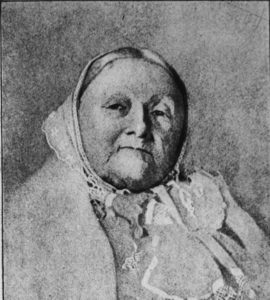
AMP | Kids is proud to partner with The Mini Page, celebrating over 50 years of providing engaging and fun learning opportunities to young readers across the country. This feature was originally syndicated in newspapers the week of May 2 – May 8, 2020. It is distributed digitally here with permission from Andrews McMeel Syndication. Enjoy and share with the young learners in your life!
During the recent outbreak of COVID-19 all around the world, people have counted on doctors, nurses and other health workers to help them survive.
You may not know, though, that in the 1800s, nurses were not the trained professionals that they are today. One woman, Florence Nightingale, is known as the founder of nursing.
Nightingale’s 200th birthday is on May 12. That day is also International Nurses Day. This week we learn more about her life and work.
Early life
Florence Nightingale was born in Florence, Italy, to British parents. She had one older sister, Frances. Her family was wealthy, and the Nightingale girls were educated in math, science and history.
As Florence grew up, she was drawn to helping people who suffered from disease or other ailments. She told her family she wanted to be a nurse.
Her parents didn’t like that idea; hospitals were dirty places where people often died. But they finally agreed, and Florence went to study in Germany. Just two years later, she was running a hospital in London.
The Crimean War
In 1853, a war broke out, and British troops were sent to fight. But soldiers didn’t have any medical care. They were suffering from their wounds, the cold temperatures, hunger and sicknesses.
Britain’s minister of war asked Florence to lead a team of nurses at an army hospital in Crimea. The hospital was filthy, with broken toilets and rats, and there were too many soldiers crowded together. There was no clean water or fresh food.
Florence had learned in Germany about the importance of cleanliness in hospitals, so she used money supplied by a London newspaper to buy supplies: good food, clean bandages and equipment for a hospital kitchen.
As she and her fellow nurses worked, the soldiers recovered and lived longer.
The Lady With the Lamp
During the night, Florence would walk through the hospital, checking on her patients. She carried a lantern, and the soldiers began calling her the Lady With the Lamp.

Florence poses with a graduating class in 1886.
After the war
Florence returned to London after the war and met with Queen Victoria to encourage better hospital conditions for the military.
In 1860, the Nightingale School of Nursing opened at St. Thomas’ Hospital in London. This new approach to nursing helped make the profession more attractive to women who wanted to work outside the home.
Later life
Florence was not healthy in her later years; all her work with ill soldiers had left her with chronic pain, and she was often sick in bed. She lived a long life, though, dying at 90 years old in London.

A drawing of Florence Nightingale from 1907.
Resources
On the Web:
At the library:
- Florence Nightingale by Kitson Jazynka
- The Drummer Boy’s Journey by Dave Jackson and Neta Jackson
Teachers: For standards-based activities to accompany this feature, visit Andrews McMeel Syndication. And follow The Mini Page on Facebook!
